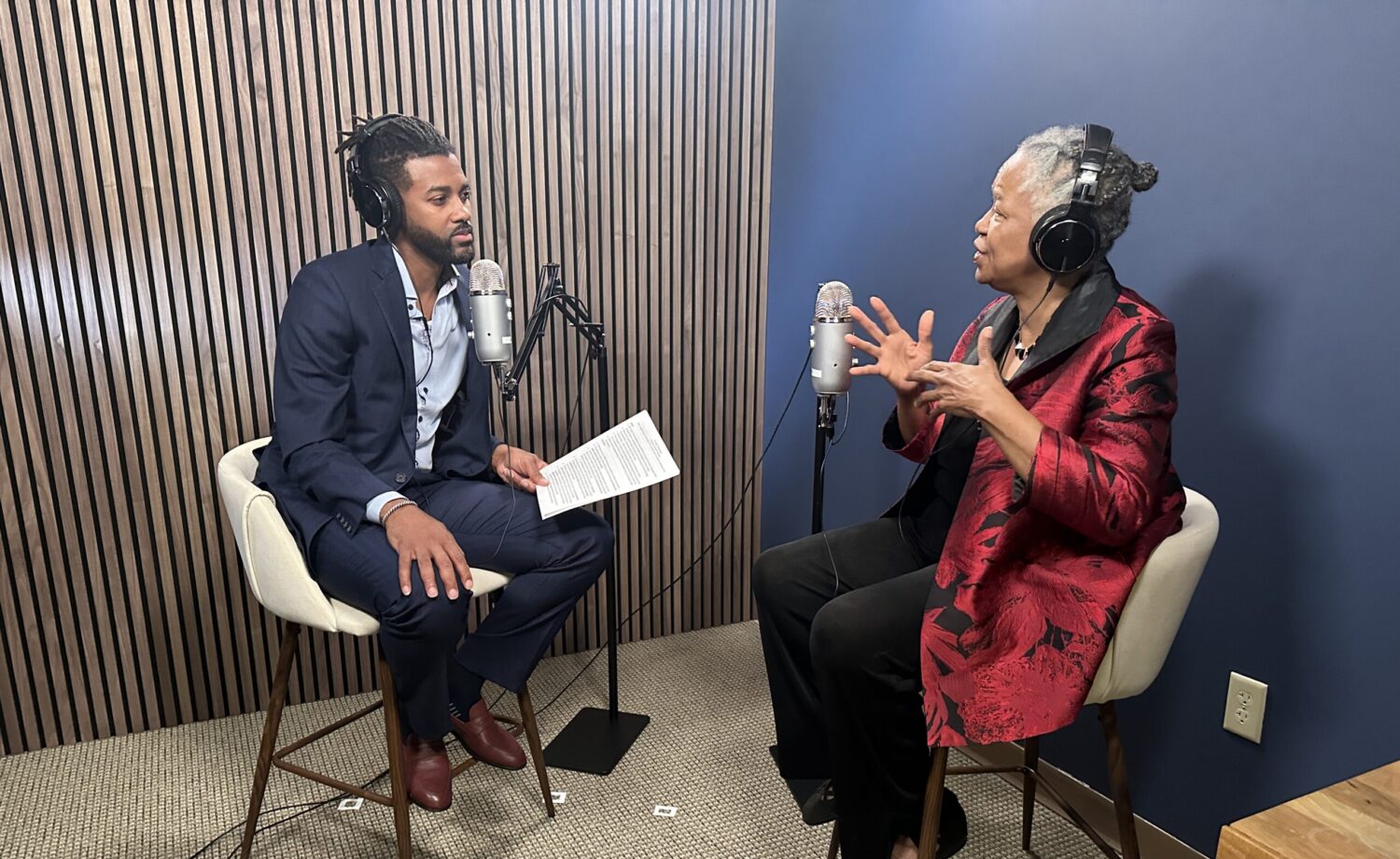Dr. Gail Christopher, a former Vice President of the W.K. Kellogg Foundation and author of the new book, Rx Racial Healing, visited Jacksonville, Florida, in August to speak at our Donors Forum in celebration of Black Philanthropy Month. She sat down with TCF President Isaiah Oliver for a conversation on our podcast, Forever Forward. The following is an excerpt from that conversation.
Tell us a little bit about your own story and how you came into your work in philanthropy.
I grew up in Cleveland, Ohio, and came of age at the peak of the civil rights movement. Dr. King was a speaker at my high school. I experienced loss when my firstborn child died as an infant. I have lived the life-and-death reality of the consequences of the racial structure of our society. Early on, I pursued a career in the healing profession in Chicago. What I learned from my patients was that the key to their ability to optimize their health was really tied to the conditions in which they lived.
We often hear a lot of terms around health: health disparities, health equity, social determinants of health, to name a few. What do these mean to you?
Health inequities show up in the disproportionately harmful conditions that exist within communities of color: water quality, air quality, the quality of housing, access to employment, perhaps most importantly, access to healthy food and nutrition. Now, what drives the conditions in the United States is certainly our national legacy of a belief in a false hierarchy of human value. This country was conceived in that ideology or belief system; slavery was in place for almost 250 years. The end of slavery was a violent process. It was followed by more violent resistance during the Jim Crow era. Just like I don’t believe that any human being is defined by the worst thing they’ve ever done, I don’t believe that our country is defined by the worst we’ve ever done. I believe the most important work for us to do in this 21st century is to jettison that false ideology and learn to see ourselves in the face of the perceived “other,” to recognize that we are one expansive human family, interdependent and interconnected.
As we celebrate Black philanthropy month, what is your vision for the future of Black philanthropy, and philanthropy more broadly?
For centuries, the philanthropic impulse has been part of our survival as Black communities. I’ve always been struck by the literal definition of philanthropy, which is love of humanity. And Martin Luther King reminded us that darkness cannot drive out darkness; only light can do that. Hatred cannot drive out hate; only love can do that. Philanthropy in the United States, if grounded in love, can be a pivotal force for transformation.
Watch the full video of our August Donors Forum or read a recap here.
